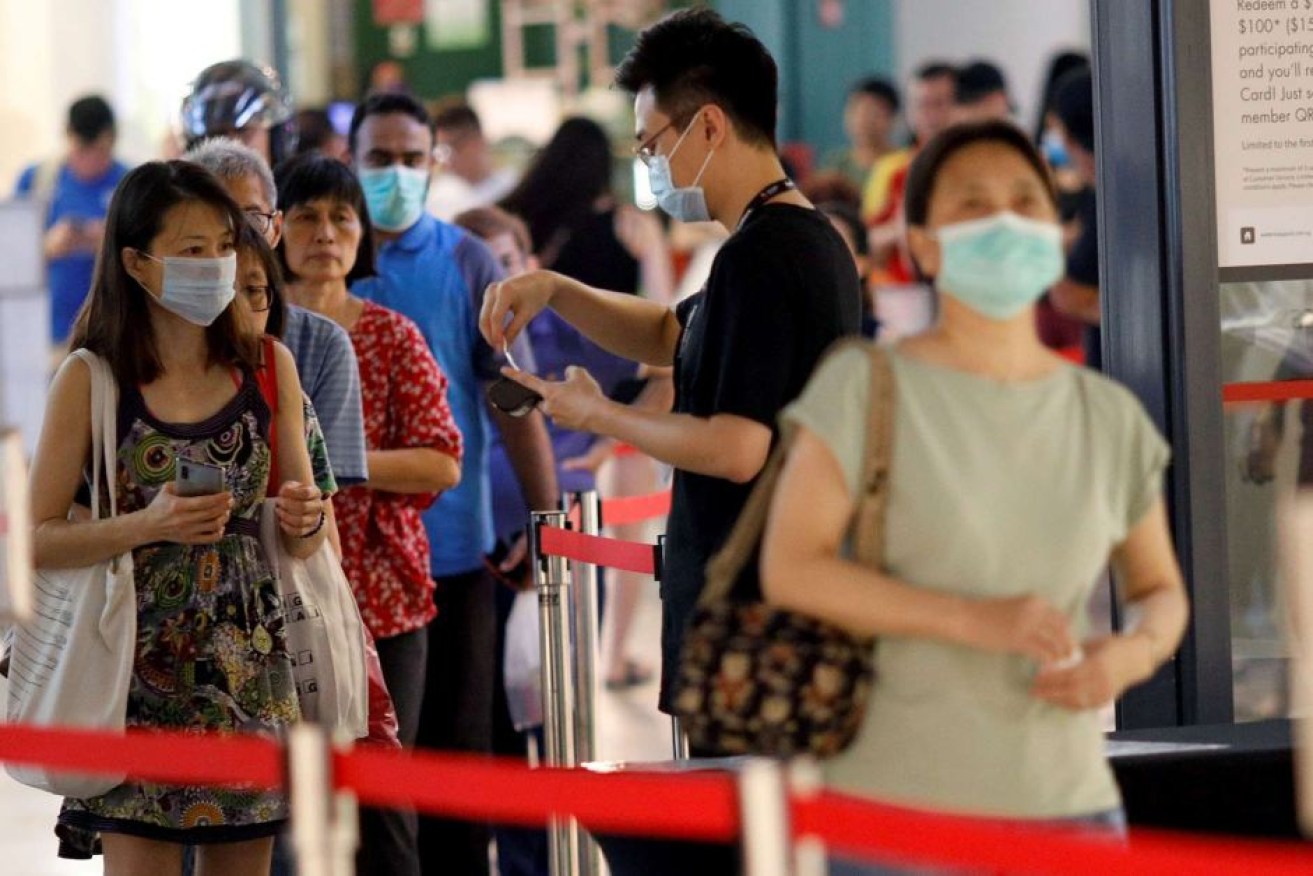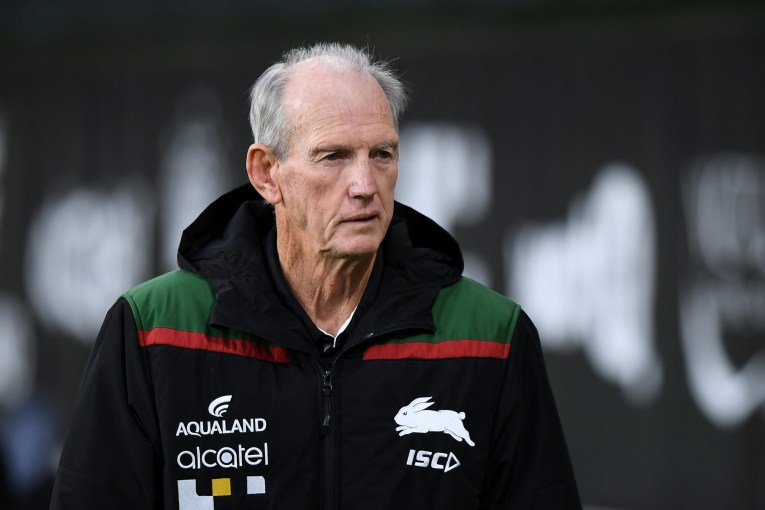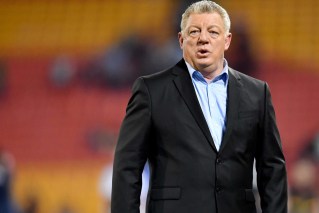Singapore, once a leader in managing virus, hits 20,000 cases
Singapore’s coronavirus infections have surged past 20,000 as more foreign workers living in crowded dormitories were diagnosed.

Singapore's early action against the coronavirus outbreak was seen by some as a model response. Now Prime Minister Scott Morrison is in discussions about a possible travel bubble with Australia.(Photo: AP: Edgar Su)
The city-state, once an exemplar of controlling the virus outbreak, reported 788 new cases on Wednesday for a total of 20,198, the third-highest in Asia after China and India.
Foreign workers living in dorms accounted for nearly 90 per cent of the cases.
Officials say the upsurge among foreign workers was expected amid ongoing virus testing at dozens of dorms that have been locked down.
Singapore will allow selected businesses to operate on May 12 in a gradual rollback of a two-month lockdown that is expected to end June 1.
The World Health Organisation has warned that countries emerging from restrictions to halt the coronavirus must proceed “extremely carefully” or risk a rapid rise in new cases.
Director-General Tedros Adhanom Ghebreyesus said countries needed to ensure they had adequate measures to control the spread of the COVID-19 respiratory disease like tracking systems and quarantine provision.
“The risk of returning to lockdown remains very real if countries do not manage the transition extremely carefully and in a phased approach,” he said at a virtual briefing in Geneva.
WHO epidemiologist Maria Van Kerkhove supported his concerns about the disease which has infected 3.71 million globally and killed more than 258,000 people, according to a Reuters tally.
“If lockdown measures are lifted too quickly, the virus can take off,” Van Kerkhove told the briefing.
Government-ordered lockdowns have become increasingly unpopular as countries suffer rising unemployment and economic activity grinds to a halt.
The eurozone economy will contract by a record 7.7 per cent this year because of the pandemic, while US private employers laid off 20.2 million workers last month as business shut their doors.
Some countries, like Germany, Spain and Italy have started to relax restrictions, while US President Trump has said his focus is on opening up the country again.
Soccer authorities have also started to consider how they can salvage interrupted competitions, with Germany’s Bundesliga getting permission to restart later this month.
WHO official Mike Ryan said it was up to governments and sporting federations to decide how and when to restart, adding the UN organisaton would offer risk management advice if needed.
Tedros, who has come under fire mainly from the Trump administration for his handling of the outbreak, said that he would conduct an assessment of the WHO’s actions when the pandemic recedes.
“While the fire is raging I think our focus should not be divided,” he said.
Tedros also defended the WHO’s record on warning about the potential for human-to-human transmission of the new coronavirus, saying it informed the world in the first half of January.
US Secretary of State Mike Pompeo renewed his criticism on China on Wednesday, blaming the country for the deaths the outbreak has caused and demanding officials in Beijing share information about the outbreak.
The WHO, which is preparing another mission to China to discover the animal origin of the virus, treated the country no differently to any of its 194 members, Tedros said.
“The rule we have in WHO and other UN agencies is that when a member state reports we post as is,” Tedros said.
“The most important thing is our guidance before, during and after 14 January included the likelihood of human to human transmission that helped countries to prepare, he added. “This is the whole truth.”












